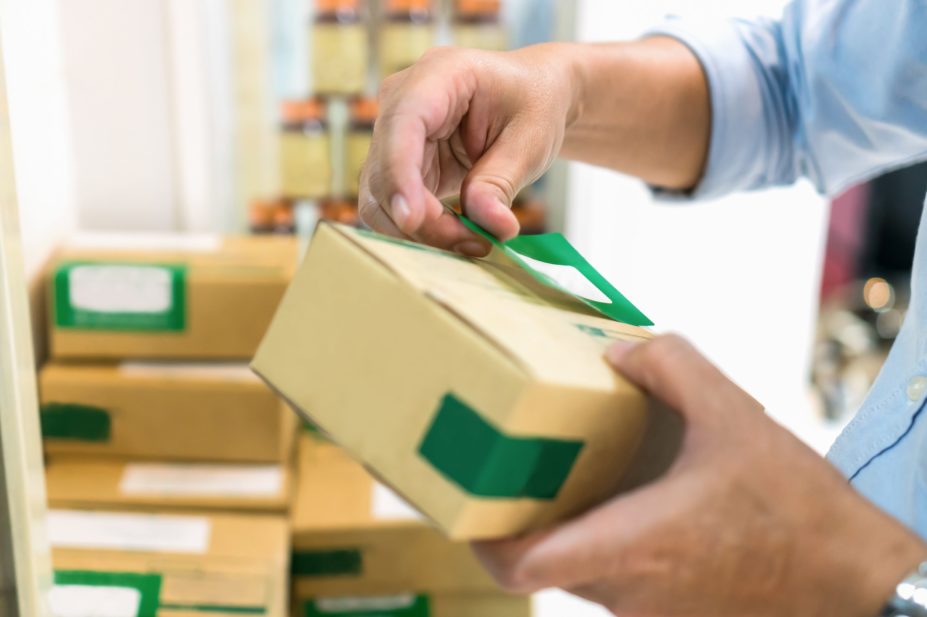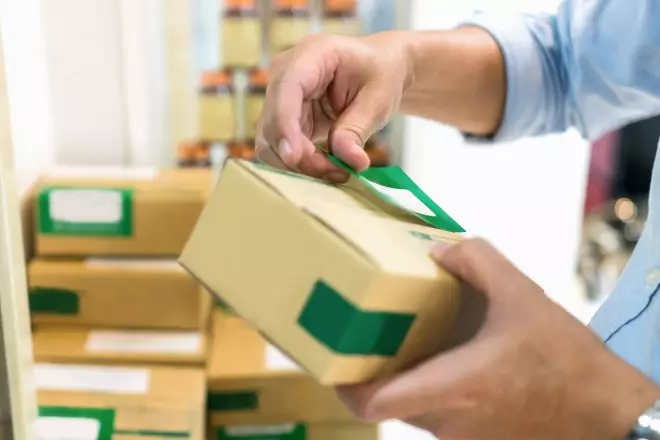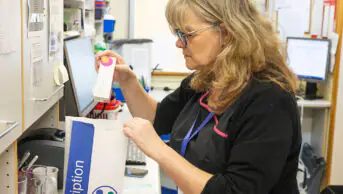
Shutterstock.com
Open access article
The Royal Pharmaceutical Society has made this article free to access in order to help healthcare professionals stay informed about an issue of national importance.
To learn more about coronavirus, please visit: https://www.rpharms.com/resources/pharmacy-guides/wuhan-novel-coronavirus

Source: Shutterstock.com
British Red Cross workers will be able to make ten additional deliveries for pharmacies each day, if required, as part of the scheme
The Welsh government has announced that DBS-checked volunteers will be used to help community pharmacists deliver medicines to vulnerable patients during the COVID-19 pandemic, and a software system will be installed in every pharmacy to ensure there is an audit trail for the deliveries.
Every community pharmacy or dispensing doctor will be ‘buddied up’ with one volunteer from a pool of DBS-checked British Red Cross workers, the initial outline of the scheme said.
They will be available, if needed, to make ten additional deliveries for their pharmacy each day, through the centrally co-ordinated service.
In addition, logistics software package, Pro Delivery Manager (PDM) will be installed in each community pharmacy to provide an audit trail for deliveries and help with delivery route planning and scheduling, with further support and guidance provided by Health Education and Improvement Wales.
Patients are still being encouraged to make ask friends, family and neighbours to collect prescriptions for them, wherever this is possible.
British Red Cross volunteers are for those extremely vulnerable patients who have no existing social network and are being asked to shield themselves for 12 weeks, the Welsh government said.
Judy Thomas, director of contractor services at Community Pharmacy Wales, said the scheme was a work in progress and more details would follow, including when the system would be in place.
“This information was to help pharmacists understand that something was coming and it is a strategic outline of what the service will look like,” she told The Pharmaceutical Journal.
“It is about making sure the volunteers were authorised and had a bit of training, and as well that they were using PDM to make sure there is audit and governance.”
Meanwhile, in England, pharmacists have expressed frustration over the lack of detail on a proposed medicines delivery service first announced on 22 March 2020.
The Pharmaceutical Services Negotiating Committee is concluding discussions with NHS England, NHS Improvement and the Department of Health and Social Care about a new national community pharmacy medicines delivery service to support vulnerable and shielded patients with guidance expected soon.
Early indications suggest the scheme will make use of the thousands of volunteers that have pledged to help NHS staff during the COVID-19 pandemic.
In a webinar on 25 March 2020, Jill Loader, deputy director of pharmacy commissioning at NHS England and NHS Improvement, told community pharmacists that volunteers who signed up to help the NHS through the GoodSAM app, which launched on 24 March 2020, would be called upon to deliver medicines to patients’ homes on behalf of community pharmacy.
Mike Hewitson, an independent pharmacist based in Dorset, said he had concerns over the use of volunteers to make deliveries because of the potential liability of the pharmacist if something goes wrong.
“The management of deliveries, regardless of who does them, is going to be a major workload and operational challenge for pharmacies,” he said.
“I am very uncomfortable with the prospect of having volunteer drivers foisted upon us by civil servants who themselves take no risk or responsibility for the scheme.
“The best way to manage this problem is to fund the pharmacies to make deliveries to patients who require them.”


